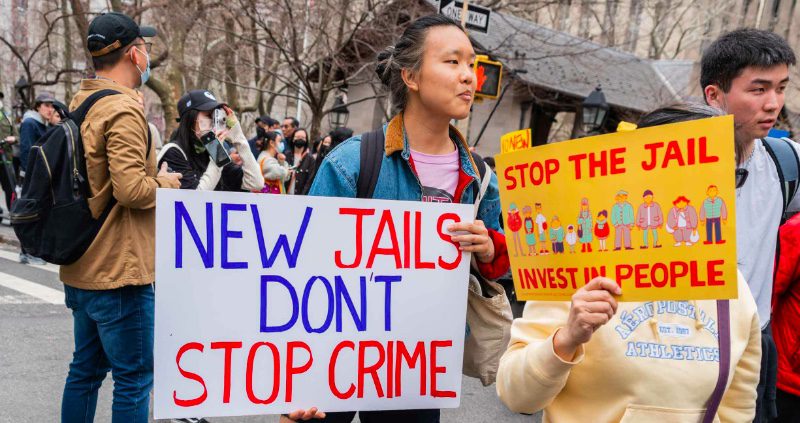
Eight Ways You Can Advance Justice Reform in 2024
The total jail and prison population in the United States has declined 21 percent since mass incarceration reached its peak level in 2008. Still, nearly two million people remain in state and federal prisons, local jails, immigration detention centers, and other carceral facilities. This horrifically high incarceration rate—one of the highest in the world—is the result of numerous unjust practices and policies that disproportionately harm Black people and people experiencing poverty.
More and more people are recognizing that so-called “tough on crime” policies are not the path to public safety. This is progress, but much work remains. While activists, advocates, and organizations like Vera are working to end mass incarceration, there are many actions you can take to help build a society that provides true justice for all.
1. Sign petitions and make your voice heard
Petitions are powerful tools that show policymakers how many people support change. You can add your name in support of needed criminal legal and immigration system reforms:
- Demand that New York City closes Rikers Island and end the persistent human rights abuses in its horrific jails.
- Signal your support to end the exception to the 13th Amendment that allows slavery as punishment for crime and help outlaw forced labor in prisons once and for all.
2. Advocate for needed changes
Contact your elected officials and other policymakers to share your support for specific criminal legal and immigration system reforms:
- Tell Congress that you support the Fairness to Freedom Act, which would provide government-funded legal representation to people facing deportation who can’t afford counsel to protect their rights.
- Contact the Los Angeles County Board of Supervisors to encourage them to close the dangerous and decrepit Men’s Central Jail, which is one of the deadliest jails in the United States, where at least 45 people died in 2023 alone.
If you want to advocate for additional reforms to help end mass incarceration, or if you don’t know who your representatives are, you can use this tool to find out who represents your district and how to contact them.
3. Support local and grassroots efforts
Many decisions that drive mass incarceration happen at the town and county levels. Local grassroots organizations are fighting jail expansions, pushing decarceration efforts, and helping people who are harmed by the criminal legal and immigration systems. Find opportunities to support the efforts of organizations local to you.
Here are four of the many organizations working with Vera to create change in their communities:
- Mano Amiga advocates for criminal legal system and immigration policy reform in central Texas and was instrumental in pushing for the establishment of a much-needed public defender office in Hays County, as well as a cite and release ordinance that has spared many people jail time.
- East Baton Rouge Parish Prison Reform Coalition is a community coalition united to bring reform to Louisiana’s East Baton Rouge Parish Prison and end its inhumane and, at times, deadly conditions.
- VOCAL New York is a statewide organization that is building a movement of people with low incomes who are dedicated to ending the AIDS epidemic, the “War on Drugs,” mass incarceration, and homelessness. VOCAL-NY fights for systemic change rooted in “justice, compassion, and love.”
- JusticeLA works to reduce the footprint of incarceration in Los Angeles by stopping jail expansion and pushing resources away from incarceration and towards community-based systems of care.
